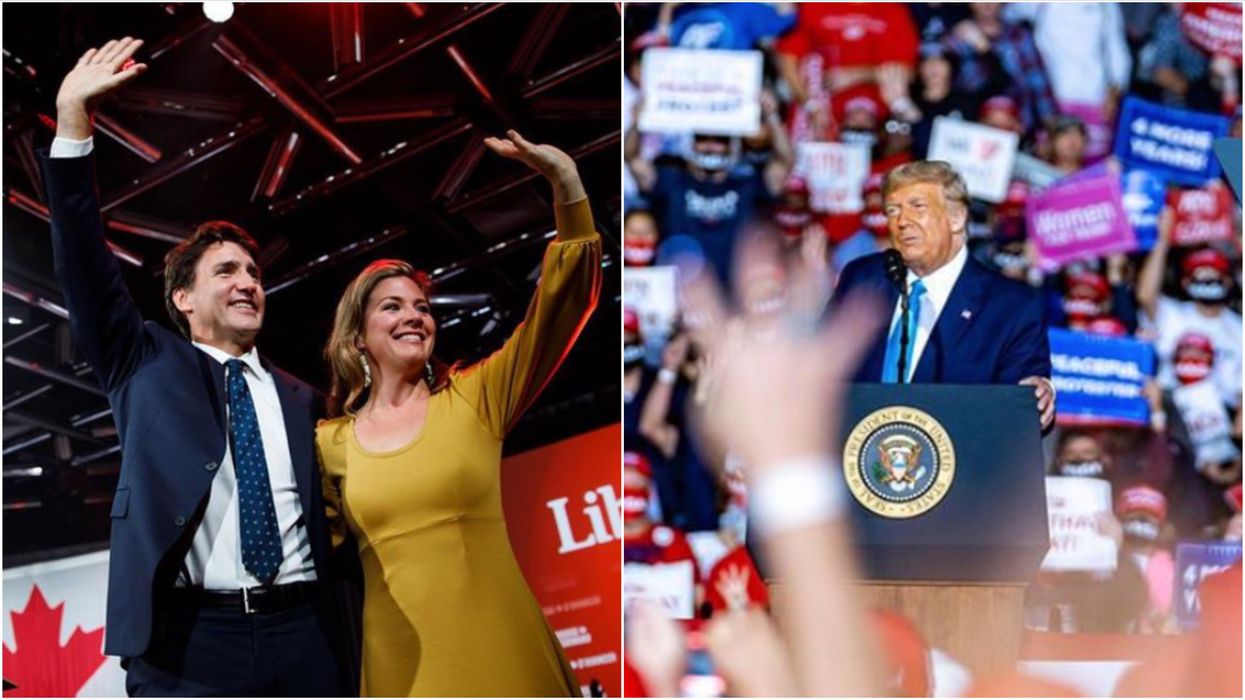Here's What The Electoral College Is All About & Why It's So Different From Canada
With still no word on the official result of the U.S. election, there are more and more questions about exactly how the American voting system works.
If you’ve been wondering “what is the Electoral College?” or “how does it compare to Canada’s first-past-the-post system?” you’re probably not the only one.
As of Wednesday afternoon, neither Joe Biden nor Donald Trump had been declared the winner.
This is despite Biden reportedly claiming a record-number of individual votes.
The American voting system means that it's easily possible to win the popular vote, but still lose the presidential race overall.
It's what happened to Hillary Clinton in 2016!
This is because the winner isn’t chosen by individual votes, but by the Electoral College.
Editor's Choice: Trump Is Already Calling Mail In Votes 'VERY STRANGE' As Election Results Trickle In
What is the Electoral College?
When Americans head to the polling stations, they don’t vote specifically for the president.
Instead, they vote for a group of officials who are part of “the Electoral College.”
These “electors” are nominated by their state’s political parties, and they pledge to support the party who appointed them.
They go on to choose the president and vice president, a little while after all the votes have been cast.
The number of electors from each state varies, depending mostly on the size of the region.
Each elector represents one vote, which presidential candidates need to gain a majority and win.
There are 538 in total. To win, a candidate needs to secure at least 270 votes.
What is Canada's system?
In Canada, things are a little different.
Like in the U.S., the winner of the popular vote doesn’t necessarily get to become prime minister after election day.
Canada’s voting process is called a "first-past-the-post" system.
This means the political party with the most seats in the House of Commons forms the government, and the leader of that party becomes the PM.
In each electoral district, or “riding,” the local candidate with the most votes wins a seat, and then represents their party in Parliament.
There are 338 seats up for grabs, across 338 ridings. This means 170 seats are needed in order to form a majority.
If one party fails to form a majority, a minority government can be created.
What changes did Justin Trudeau want to make?
As one of his primary election promises in 2015, Prime Minister Justin Trudeau promised to get rid of Canada's federal first-past-the-post system.
At the time, he reportedly claimed that, “2015 will be the last federal election conducted under the first-past-the-post voting system [in Canada].”
The PM wanted to change the system as, in its current form, it allows a party to win the majority of seats in the House of Commons with less than 40% of the popular vote.
By reforming the way Canada votes, he planned to "make every vote count."
However, nothing came of Trudeau's promise.
By 2017, Trudeau’s government confirmed that they would not be moving forward with their plans to change the system, as the "broad support needed for a change of this magnitude, did not exist.”
